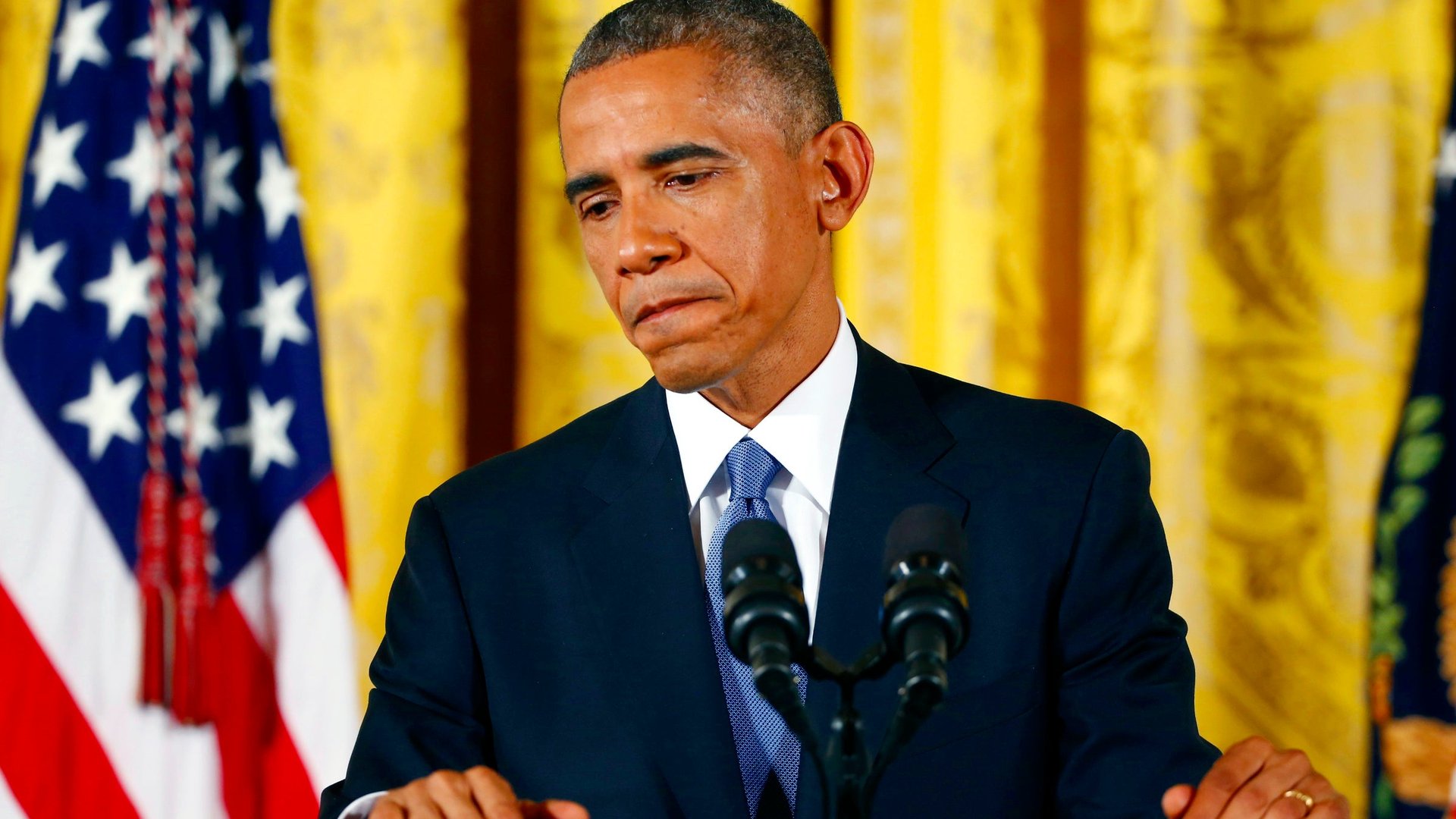Donald Trump’s election spells doom for Barack Obama’s legacy
The results of the 2016 election will not be kind to Barack Obama’s legacy—especially with a Republican majority in both houses of Congress.


The results of the 2016 election will not be kind to Barack Obama’s legacy—especially with a Republican majority in both houses of Congress.
Donald Trump has already promised to begin his term in office by gutting the executive orders that the Obama administration has used to bypass gridlock in Congress.
Executive orders allow the president to make rules within the laws that Congress has established. Obama has used these orders to forestall deportation of the minor children of illegal immigrants; mandate wage increases for government contractors, institute rules regulating greenhouse emissions from power plants, and apply the Family Medical Leave Act to same-sex couples. All of these could, and likely will, be repealed with a stroke of Trump’s pen on his first day in office.
Then there are international commitments, which the president has significant latitude to enforce or ignore. Obama signed on to several global deals committing the US to fight climate change, a phenomenon Trump regards as a hoax. He also signed a landmark nuclear non-proliferation deal with Iran that Trump has threatened to tear up, though it may be difficult for the US to pull out of it due to commitments key European allies made to enforce the deal.
Then there’s the possibility that Trump spends part of his first year in the White House working on his project to reject free trade agreements; there, too, he is constrained by Congress, but still has wide latitude to retaliate against trade abuses by countries like China and Mexico; he could even launch a trade war by making good on promises to hike tariffs by 35% to 45%.
Trump will also have opportunities to act on other regulatory issues. For example, net neutrality rules put in place by Obama’s Federal Communications Commission will likely be rolled back by Trump appointees, and a Trump Department of Justice is not likely to push hard to enforce the Voting Rights Act, a battle the Obama administration took on when some of its authorities expired.
Then there’s the Supreme Court, which is currently deadlocked at 4-4 on partisan issues. But a newly appointed Trump Justice, confirmed by the Republican senate, could help overturn Roe vs. Wade, the Supreme Court decision that protects a woman’s right to obtain an abortion. It could also ensure an expansive reading of the Second Amendment that forestalls any new restrictions on gun ownership.
Now, we come to two of Obama’s major legislative accomplishments: the 2010 Affordable Care Act and the Dodd-Frank financial reform act. Republican lawmakers have been eager to gut both these laws, the first of which raises taxes to subsidize health care for poorer Americans and the second of which imposed new rules on bank business practices in the wake of the 2008 financial crisis. They’d also like to reinstitute George W. Bush’s tax cuts for the wealthy, which were rolled back in a 2013 compromise between the two parties.
Obama’s veto pen has meant a Republican Congress has been unable to reverse any of these legislative changes, but with Trump in office, lawmakers will have a good shot at the task. It won’t be easy: Democratic senators will likely seek to block any sweeping changes, but they may find the politics difficult, given their past criticism of the filibuster and the challenge of selling these laws to a divided public in the first place.
But beyond any specific laws that Obama has put in place, this election will empower conservatives who have been seeking to roll back the federal government’s social services programs for decades. Speaker of the House Paul Ryan’s budget plans will become the de facto blueprint for the new administration, and those plans include large cuts to Medicaid and Medicare and even deeper cuts in all kinds of domestic spending, from food stamps to scientific research. Obama managed to hold the line against these Tea Party-inspired plans for eight years, but with Trump in office, there will be little to stop them from being enacted.
That’s change. Can you believe it?